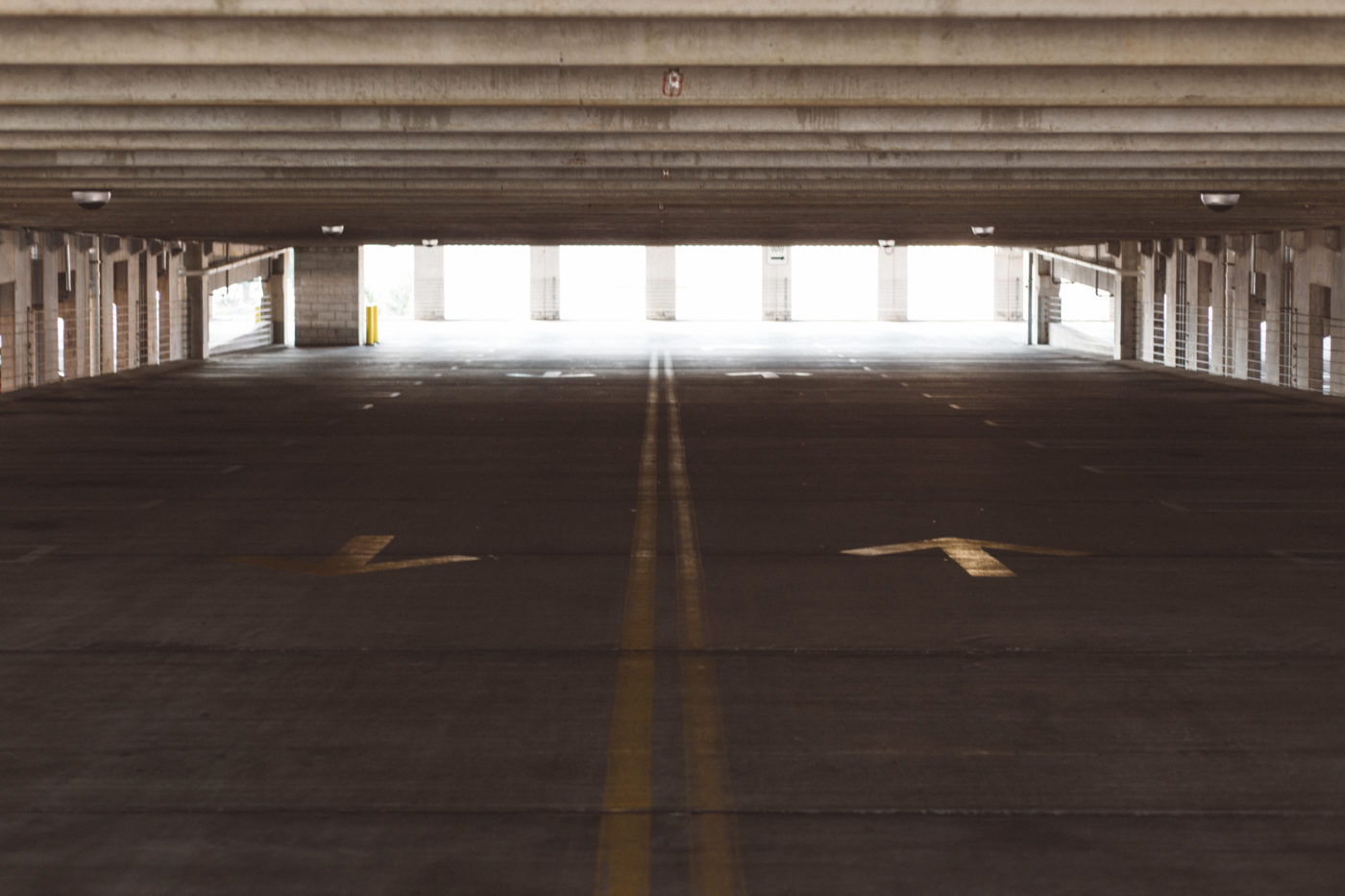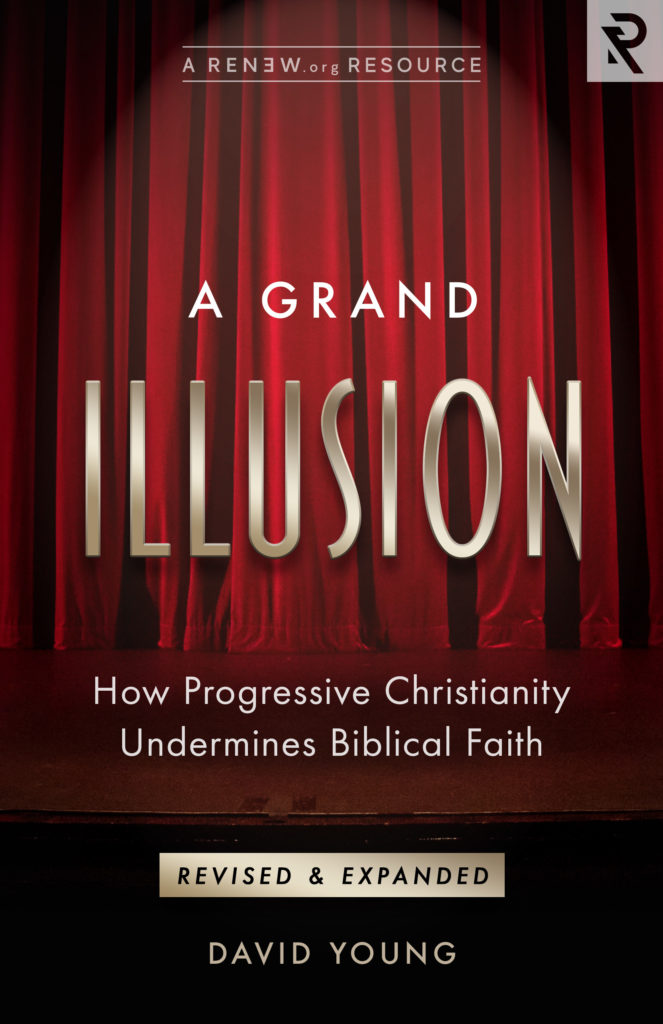
Intersectionality, Christianity, & Why Reconciliation > Reversal
In the land of India lived a woman named Kisa. She had a son, an only son, who unexpectedly died. Kisa could not accept that he was gone. So she scooped him up in her arms and went from neighbor to neighbor asking for medicine.
Everyone she talked to knew the boy was dead. Yet they simply said, “I’m sorry, I don’t have the medicine your boy needs.”
One neighbor suggested that Kisa take the boy to a religious teacher in the area. “Perhaps the teacher can do something to help.” So off she went in the direction of the religious teacher, carrying the corpse.
“Ah I see,” said the teacher, whom we know of as the Buddha. “Kisa, I know exactly what you need. What you need is a special seed. It’s a mustard seed.”
Kisa thought, Well, that should be easy. Everyone has mustard seeds lying around.
But the Buddha said, “Wait, it’s not just any mustard seed which will do. Rather, you need to get this mustard seed from a house which has never been touched by death—a household which has never had anybody die in it.”
Kisa thanked the Buddha and hurried off to find the special seed. “Well, sure we have a mustard seed,” a neighbor told her. “Let me go and get it.”
“But wait,” Kisa interrupted. “Has anyone in your household ever died?”
“Yes, as a matter of fact.”
“Well, then, thank you anyway. I need to find the seed elsewhere.”
Kisa went from house to house. Everyone had a mustard seed for her. But there was not a single household that had been untouched by death. Death was everywhere.
Then it hit her: Death is everywhere. That was the Buddha’s point. That was the Buddha’s special medicine.
His medicine was for Kisa to understand that death is just what happens.[1] Suffering and grief are just what happen. It’s just the way things are. Just accept it.
***
“Just the way things are.” The Buddha wasn’t the only one who looked at suffering in the ancient world and said, “Just the way things are.” If you move over from India in the East to Rome in the West, you’ll see an empire which felt the same way toward suffering people.
The Roman Empire saw the plague victim—coughing, wheezing, gasping for breath—and what’s worse is that his family has left him behind to die alone. The Empire looks at the plague victim and says, “Just the way things are.”
The Empire sees the prisoners. One gets eaten by a lion in the Coliseum to the sound of laughter. Another gets slashed through by a gladiator to the sound of applause. The other gets pinned up on a cross like a bug in a bug collection.
The Empire watches these prisoners—often just for entertainment value—and, yes, it’s a rough way to go, but, “Just the way things are.”
The Roman Empire sees the deformed baby boy dumped outside of town. Screaming for Mommy yet completely abandoned. He’ll go quiet soon. “Just the way things are.”
The Roman Empire sees poverty and says, “Just the way things are.” One Roman playwright put it this way: “You do a beggar a bad service by giving him food and drink. You lose what you give and prolong his life for more misery.”[2]
***
Fast-forward to today. The dominant worldviews of the East still largely say that suffering is just what we should expect. Hinduism and Buddhism teach that we shouldn’t see anything intrinsically disturbing about suffering. Why not? Well, because suffering is a person’s karma working itself out. This is retribution for what was done in a previous life.
But something major happened to change the Western mindset.
Today, in the Western world, when we hear about Boko Haram in Nigeria kidnapping 2,000 schoolgirls, we do not say, “Just the way things are.” When we hear about life-threatening droughts or tsunami aftermaths on the other side of the world, we do not think, “Just the way things are.”
We see a knee on the neck of a man crying out for air, and it makes us ache with compassion for a man we’ve never met. When we saw that video, here’s what we were not thinking: “Just the way things are.”
No, we saw that video, and something in our souls cried out, “This is not the way it was meant to be!”
So, what changed?
Why did we in the Western world go from looking at the suffering around us and saying, “Just the way things are,” to where nowadays, we hear about tragedies and atrocities and we have the fundamental conviction that this is not how things were meant to be? What changed us?
One word: Jesus.
***
When a woman lost her only son, the Buddha’s answer was to teach her, “This is just the way things are.”
When Jesus met a woman who had lost her only son, His answer could not have been more different.
As he [Jesus] drew near to the gate of the town, behold a man who had died was being carried out, the only son of his mother, and she was a widow, and a considerable crowd from the town was with her. And when the Lord saw her, he had compassion on her and said to her, “Do not weep.” Then he came up and touched the bier, and the bearers stood still. And he said, “Young man, I say to you, arise.” And the dead man sat up and began to speak, and Jesus gave him to his mother (Luke 7:12-15).
When Jesus saw suffering and death, He didn’t say, “Just the way things are.” And why not?
It’s because Jesus knows better than anyone else that suffering and death are not the way things were meant to be.
Think about it: Why did Jesus cry at the grave of His friend Lazarus—when He was going to raise Lazarus within minutes? It’s because Jesus knows better than anyone else how the world is really supposed to be.
That’s why Jesus turned funerals into parties. He taught crippled people how to dance. Blind people went away amazed at what they’d just seen.
When Jesus saw suffering, He didn’t say, “Just the way things are.” No, when Jesus saw suffering, He did something about it. Then He told us that if we’re going to call ourselves Christians, we’d better do the same.
“For I was hungry and you gave me food, I was thirsty and you gave me drink, I was a stranger and you welcomed me, I was naked and you clothed me, I was sick and you visited me, I was in prison and you came to me. . . . Truly, I say to you, as you did it to one of the least of these my brothers, you did it to me” (Matthew 25:35-36, 40).
***
When Jesus saw suffering, He did something about it. Then He told us that, if we’re going to call ourselves Christians, we’d better do the same.
So that’s exactly what the Church did.
All over the Roman Empire, the Church picked up those unwanted babies that had been dumped outside the city, and they raised those babies as their own. The Church would take up an offering and spend the money taking care of orphans, the elderly, and the poor.
A plague would sweep through a village, and all the healthy people would leave as quickly as they could—except for one group. The Christians would stick around, care for the victims, and often die of the disease themselves.
Eventually, when Christianity stopped being persecuted in the 300s, Christians were able to do even more for the down and outers. They built hospitals, orphanages, nursing homes, mental asylums. If you check out the history of these institutions, you’ll see that the first time they start popping up in the Roman Empire is when, starting in the 300s, the no-longer-persecuted church has the financial means to fund these projects of compassion.[3]
I am convinced that the way of Jesus is the best possible news for oppressed people.
It is true that there have been Christians in history who have been oppressors. They did not follow Jesus’ example. Some Christians have been slaveowners. Some Christians have been racist. Some Christians have persecuted adherents of other religions. Some Christians have used political power to keep people down. Tragically, this list could continue for a while.
Yet, when it’s following the way of Jesus, Christianity as taught by Jesus really is the best news for oppressed people.
Christianity teaches us that we are all made in the image of God. We are all loved by God. We are all invited into God’s family to be adopted as beloved children. In fact, God even has special care in His heart for the down and outers, such as the widow and the orphan (e.g., James 1:27). Jesus paid special attention to helping society’s rejects and treating them as important (e.g., John 4:7ff; Mark 1:39-40).
The way of Jesus is the best possible news for oppressed people.
The atheist Friedrich Nietzsche knew all this and was jealous of it. In his book The Antichrist, Nietzsche explained that Christianity lifted up what he called the “bungled and botched” of humanity. Christianity treated these people as of equal importance to everyone else. Christianity taught that everybody, even what Nietzsche called the “three-fourths insane,” has an immortal soul and has eternal importance.
It made Nietzsche sick. It also made Nietzsche jealous.
According to Nietzsche, it’s because the church saw everybody as important that the church “lured all the botched, the dissatisfied, the fallen upon evil days, the whole refuse and off-scouring of humanity to its side.” Nietzsche explains that the church’s high regard for all people was responsible “for its triumph.”[4]
Christianity triumphed, not by running people over, but by walking alongside.
The pre-Christian Roman Empire looked at suffering and said, “Just the way things are.” Christianity looks at your suffering and says, “That’s not the way it was meant to be.” The empire treated suffering with cruelty, while the church treated suffering with compassion.
But don’t miss this additional important difference: The church won. The emperor’s crown rolls in the dust, while the church marches on.
***
The way of Jesus is the best possible news for oppressed people. Yet that’s not what we’ve been hearing, is it?
What we’ve been hearing is that Christianity isn’t good news for oppressed people, but that Christianity is one of society’s ways of oppressing people.
Have you heard the term “Christian privilege” or “Christian hegemony”? The idea behind these terms is that, in the West, Christians enjoy privilege which they didn’t earn and which needs to be challenged.
For example, according to an article called “Here Are 3 Examples of Christian Privilege—and How You Can Challenge It,” it is unfortunate that Christianity is still seen as the default worldview in the West. According to the article, Christians uniquely enjoy the ability to publicly express their religion unhindered. Second, Christians take advantage of a widespread pro-Christian bias at educational institutions. Third, Christians have the upper hand in Western society because so many Western institutions, including the legal system, are tilted in their favor.
I am convinced that the way of Jesus is the best possible news for oppressed people. However, you are going to be told that Christianity is actually a privileged religion which needs to have increasingly less cultural influence in order for oppressed people to emerge better off in society.
***
Western society is witnessing a fateful collision between two rival tales of good VS evil. The first tale can be depicted using two lines: one line going up, the other line going down. This involves switching places—one emerging group taking the place of another group on its way down. We will call this A Tale of Reversal.
This is different from just throwing off the shackles from your oppressors—such as the American Revolution cast off British oppression. Reversal isn’t best depicted by the American Revolution of 1776, but rather by the French Revolution of 1789.
The French Revolution started as casting off oppression—peasants storming the Bastille, forcing a new constitution, eventually overthrowing the monarchy. But think about where the Revolution ended up: guillotining the king, then the queen. During the ten-month “Reign of Terror,” some 17,000 French were guillotined for opposing the Revolution.
Reversal means switching places with your oppressors.
We see this tale of reversal in Marxist revolutions, where it’s not just the oppressed “proletariat” casting off the oppression of the ruling class (the “bourgeoise”). Instead, it’s a matter of switching places with the ruling class, so that one of the Revolution’s goals is—listen to the language—the dictatorship of the proletariat.
It was an Italian Marxist named Antonio Gramsci who was in an Italian prison contemplating how to make Revolution happen in places which were largely content with how things were. He came up with the concept of “cultural hegemony.” This was the idea that people in power stay in power, not just through bullets and bayonets—but through beliefs. Therefore, the beliefs have to be attacked in order to bring about the Revolution.
One belief that has come under an incredible amount of attack in the West is the belief in the importance of the nuclear family—dad, mom, and kids.
If the perception is that the oppressive status quo is heterosexual, cisgender, and Christian, then, in order to bring that status quo down, you have to assault the importance of the nuclear family.
According to The Tale of Reversal, 21st century edition, there are numerous groups said to be perpetually oppressed, as well as numerous groups who keep the oppressed people down through failing to challenge their own unearned privilege. So it’s male VS female. It’s heterosexual VS lesbian and gay. It’s cisgender VS transgender. It’s monogamous VS bisexual and polyamorous. It’s rich VS poor. It’s European colonizers VS people from once-colonized lands such as India, Africa, and Central America.
Western society is witnessing a fateful collision between two rival tales of good VS evil.
According to this tale, if you are privileged—especially if you are privileged in multiple ways—then you’ve got some major repenting to do. If you are privileged and still want to be seen as on the right side of history, then here are some to-do’s you’d better get to, and quick. For one thing, it’s your turn to be quiet. If you want to speak, do so as an ally to oppressed people. Above all, go with whatever the oppressed group says is justice. If you are called nasty names that don’t feel like they fit, don’t dare get defensive.
If you are told to check your privilege, then do it and repent. If you’re told that you’re a racist because you benefit from systemic oppression, then own it and repent. If you’re told to view Bible-believers as bigots when it comes to issues such as sex, then that’s how you will need to view them moving forward. If you’re told that the nuclear family needs to be disrupted, or that capitalism is inherently oppressive, or that American police are systemically racist, then go with it.
After all, as a privileged person, you’ve already had your turn to define justice. Now, it’s time for the oppressed people to define justice.
This is especially the case for people who are oppressed at multiple levels. For example, if you are a racial minority and a sexual minority and a religious minority. These are the people who live at the “intersections” of injustice.
This is where the concept of intersectionality comes into play. If you’re a racial minority, then that’s important. But if you’re a racial and gender minority, then you really have the microphone. But if you’re a racial, gender, sexual, and religious minority (let’s say, an Asian, queer, Buddhist transwoman), then you have total possession of the gavel. Because it’s your turn.
If you’re an oppressed person, and you want to tweet something like #cancelwhitepeople, then it’s probably okay. Because they are seen as the oppressors. It’s reversal, after all.
Or, if you want to lambast Christianity as an oppressive white man’s religion—even though its founder was a Middle Eastern man, its most famous early theologians were African, and its 21st century epicenters are places like China and Africa—go ahead and punch Christianity as hard as you want. Because it has come time for the reversal. And Christianity goes with the down arrow.
***
I’m convinced that the way of Jesus is the best possible news for oppressed people. Here’s why: it’s because He gives us something far better than reversal.
Far better than a line going up and a line going down is this: a vertical line with a horizontal line going through it to form a cross.
The cross offers us something so much better than reversal; it offers us reconciliation. First, reconciliation with God (that’s the vertical line), and, second, reconciliation with each other (the horizontal line).
According to The Tale of Reconciliation, people are not divided into good and bad, oppressors and oppressed. Rather, we are all made in God’s image. We are all corrupted by sin. We are all welcomed into God’s family through grace.
As we repentantly reconcile with God, we find ourselves being drawn together.
Do you realize that Jesus gives us the tools we need in order to bring healing into this time of national woundedness? Listen to the way of Jesus, according to Colossians 3:11-14:
“Here there is not Greek and Jew, circumcised and uncircumcised, Barbarian, Scythian, slave, free; but Christ is all, and in all. Put on then, as God’s chosen ones, holy and beloved, compassionate hearts, kindness, humility, meekness, and patience, bearing with one another and, if one has a complaint against another, forgiving each other. As the Lord has forgiven you, so you also must forgive. And above all these put on love, which binds everything together in perfect harmony.”
What this world badly needs is reconciliation, not a French Revolution-style reversal. What’s needed is not a timid church, fearful of sticking its neck out, but a courageous church, faithful to reach its arms out and resume its historic practice of lifting people up and walking alongside—even if the rest of the world disregards those people as “bungled and botched.”
It is true that those intent on reversal don’t want reconciliation; in fact, they often want revenge. Sometimes it’s revenge against something blatantly oppressive; other times they want revenge against something abstract and hard to define, like “the system” or “those in authority”; still other times, they want revenge against something clearly good, such as God’s moral standards. To them, reconcilers are missing the point: why reconcile with people we hate?
Yet, we know that the longer people go without reconciling—most importantly with God—the darker things will get, and the more hateful and vengeful people will be toward each other.
When it gets dark, let us reconciled reconcilers remember that Jesus called us outward and onward from any inward, fearful huddling. He gave us an identity for such a dark time as this: “light of the world” (Matthew 5:14).
[1] The story of Kisa Gotami is narrated in Andrew Olendszi, “Skinny Gotami and the Mustard Seed (Commentary to Thig 10.1), Access to Insight, 2005 http://www.accesstoinsight.org/noncanon/comy/thiga-10-01-ao0.html (accessed December 13, 2014).
[2] Alvin J. Schmidt, How Christianity Changed the World (Grand Rapids: Zondervan, 2004), 129.
[3] See Schmidt, 127-160.
[4] Friedrich Nietzsche, “Section 43,” The Antichrist.








